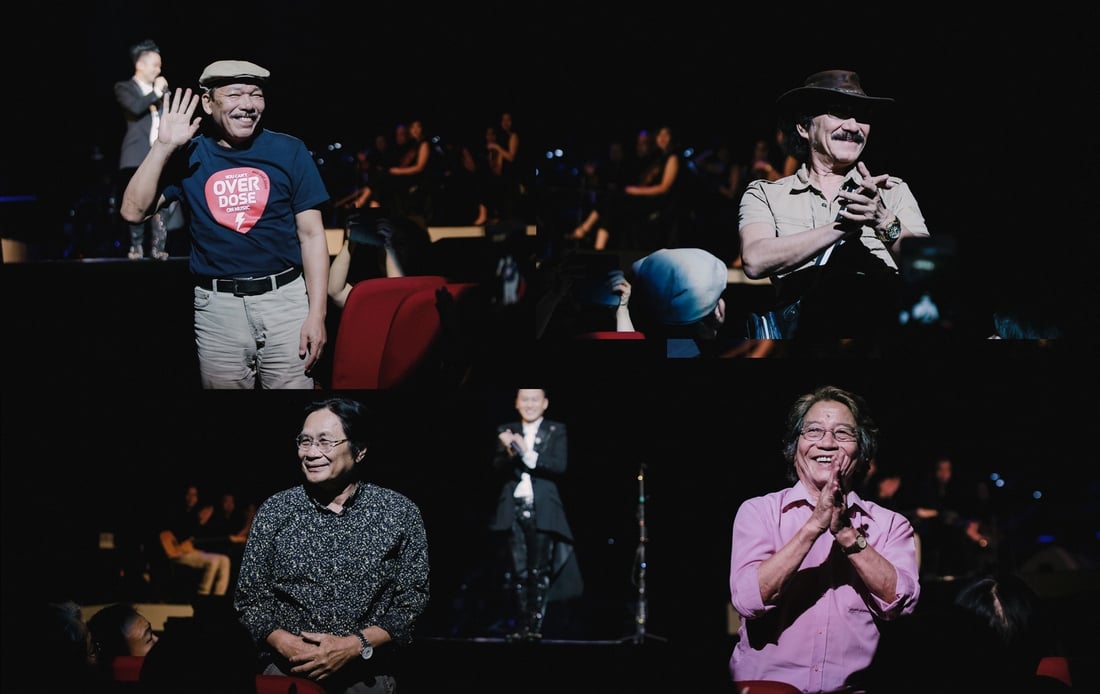
In the quartet, Duong Thu and Nguyen Cuong were both born in 1943, Pho Duc Phuong was born in 1944, and Tran Tien was born in 1947.
One day, Duong Thu said, "Now tell the journalists not to call us the quartet anymore; call us the "Hanoi quartet" for example, to make it simple and humble, so people won't hate us."
In 2018, singer Tung Duong organized a special music night called Tung Duong sings the Red River Quartet . The name "Red River Quartet" was born. That was also the first and only music night about the four men and with all four men. Because two years later, musician Pho Duc Phuong returned to "Phu Van peak", saying goodbye to his three friends.
On the day Pho Duc Phuong passed away, Nguyen Cuong wrote: "Thu, Tien, and I came to Phuong. I will always remember you. I will always remember you. I love you so much, Phuong."
Tran Tien whispered: "Wherever you go, remember to find some rocks in the quiet forest, so that the group of four brothers can sit together. With a glass of walnut wine, next to a quiet fairy. We can sip and quietly admire the beauty with a bit of euphoria."
Four men, four colors
Musician Duong Thu told Tuoi Tre that at that time he was surprised to see Tung Duong doing a live show and calling them the Red River Quartet. "I don't know what this guy was thinking. I agreed to submit the song because it was interesting to be chosen with three of my friends. I really didn't think about it. Hearing the words Red River Quartet sounded too scary," he said.
Although they were close friends since their early days, musically, they were truly of different colors. And as Duong Thu himself admitted, in some ways, he was different from the other three.
Pho Duc Phuong is passionate about classical opera, cheo, and ca tru. Nguyen Cuong is passionate about folk music from all regions (both plains and mountains).
Duong Thu classified the two as contemporary folk. Tran Tien has a broader musical sense, leaning towards pop. All three are people of society.
Especially Tran Tien, many of his poems have something like the poems of Luu Quang Vu, Nguyen Duy, his contemporaries, who were also leading literary figures of the renovation period.
Unlike the Friends group (including musicians Trinh Cong Son, Ton That Lap, Tran Long An, Tu Huy, Nguyen Ngoc Thien, Nguyen Van Hien, Thanh Tung) in the early 1990s, who wanted to orient musical tastes with new, lyrical, and vibrant musical works.
The Red River Quartet has no common platform or declaration.
They were attached to a group, both accidentally and intentionally. Because it is not easy for Vietnamese music to have four famous musicians at the same time, all coming from the Red River.
Duong Thu was close to Pho Duc Phuong and Tran Tien since the early 1960s. At that time, he and Mr. Phuong studied together at Hanoi Pedagogical University (Mr. Thu majored in literature, Mr. Phuong majored in mathematics).
Tran Tien had just joined the Hanoi Song and Dance Troupe and was also from Hanoi. As for Nguyen Cuong, it was later when Duong Thu, Tran Tien and Nguyen Cuong all took the entrance exam to the Hanoi Conservatory of Music in 1972.
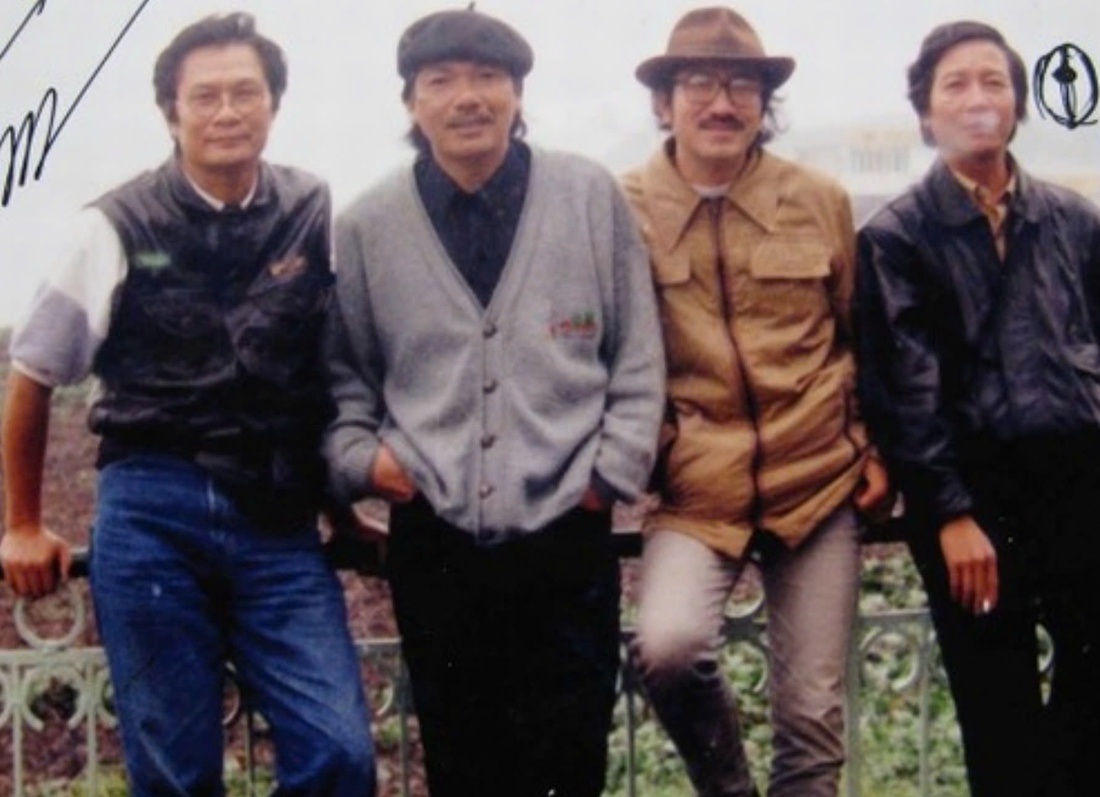
The Red River Quartet from left to right: Duong Thu, Tran Tien, Nguyen Cuong, Pho Duc Phuong - Photo: THUY KHA
In Duong Thu's mind, Pho Duc Phuong is a bit crazy, Tran Tien is a bit wild, and Nguyen Cuong is enthusiastic and a bit of a "boy soldier".
What about him? Duong Thu considered himself "serious and boring" so they jokingly called him "professor". Nguyen Cuong used the term "philosophical porridge" to describe Duong Thu. Tran Tien said that among the four brothers, "Thu is the oldest and most mature".
"We have different personalities, but it's strange that we're so close. Cuong and I share more about our professional life, and we have the same dreams about music, and even things outside of music, like Cuong getting married," Duong Thu said.
The musician "is grateful to all three, especially Nguyen Cuong, because they are like my two teachers, musicians Nguyen Xinh and Chu Minh, who gave me confidence in my musical path."
"The Rivers of Liangshan Marsh"
The generation of the Red River Quartet is a pivotal generation that "produces" many talents for the Vietnamese music industry. In addition to Tran Tien, Nguyen Cuong, Duong Thu, Pho Duc Phuong, there are also Thanh Tung, Truong Ngoc Ninh, Ngoc Dai, Van Thanh Nho... Tran Tien said that when the brothers met, they were "as happy as a sandstorm".
He said that the four of them had actually liked and respected each other for a long time. They played games, but only one at a time. They accidentally formed a "gang", and looking back, they suddenly resembled the gangsters of Liangshan Marsh.
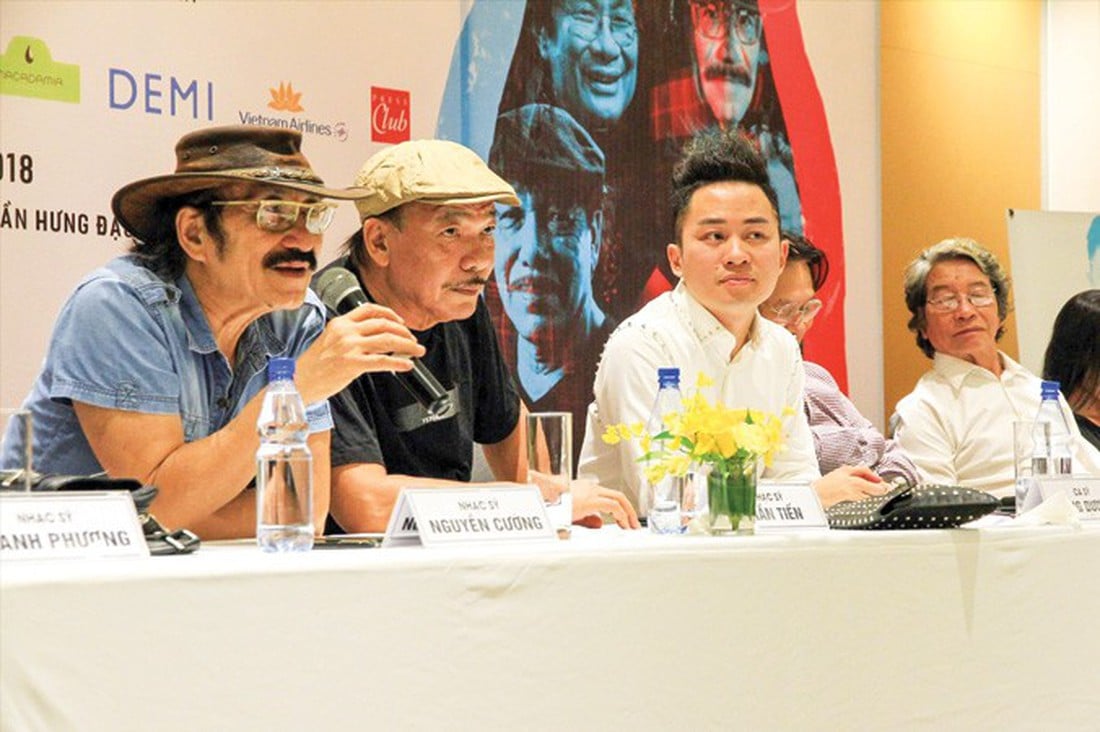
Red River Quartet Press Conference 2018 - Photo: MANH HA
In Duong Thu's memory, Pho Duc Phuong became famous in 1966, at a very young age (22 years old) with the song "Quan Ho Girls" - one of the best songs of that time.
He said the appearance of Pho Duc Phuong "heralded the birth of a new generation of musicians", "Phuong is the hope of revolutionary music after the previous generation: Do Nhuan, Hoang Van, Phan Huynh Dieu, Nguyen Van Ty, Huy Du...". Phuong continued to affirm his talent until the beginning of this century with outstanding works such as Lake on the mountain, A glimpse of West Lake, Flow away, river, On the top of Phu Van ...
Tran Tien "appeared" later (in 1968) but was not prominent.
It was not until 10 years later with Love Chorus, Round Footprints on the Sand, Bullet-Shaped Eyes, Goodbye Swallows, and Homeland Melody that he was able to assert himself and become a star in the post-war and renovation period.
"With the slogan 'science, nation and mass', in our generation, Tien is number one, because Tien's music is both learned, Vietnamese and easy to listen to and sing," Duong Thu said about his friend.
Nguyen Cuong "appeared" 10 years after Tran Tien (in 1980) after a trip to the Central Highlands to create a program for the Dak Lak Song and Dance Troupe to participate in the National Song and Dance Festival.
According to Duong Thu, Nguyen Cuong really shocked the professional music world by exploiting the Central Highlands folk music material on the basis of a very stimulating light music rhythm, something that was new to the Northern music listening public at that time, which people parodied as "gurgly" music.
Oh M'drak, H'ren up in the fields, Pleiku eyes bustling on festival stages and on television. Nguyen Cuong with his immortal cowboy hat became the idol of many young musicians at that time.
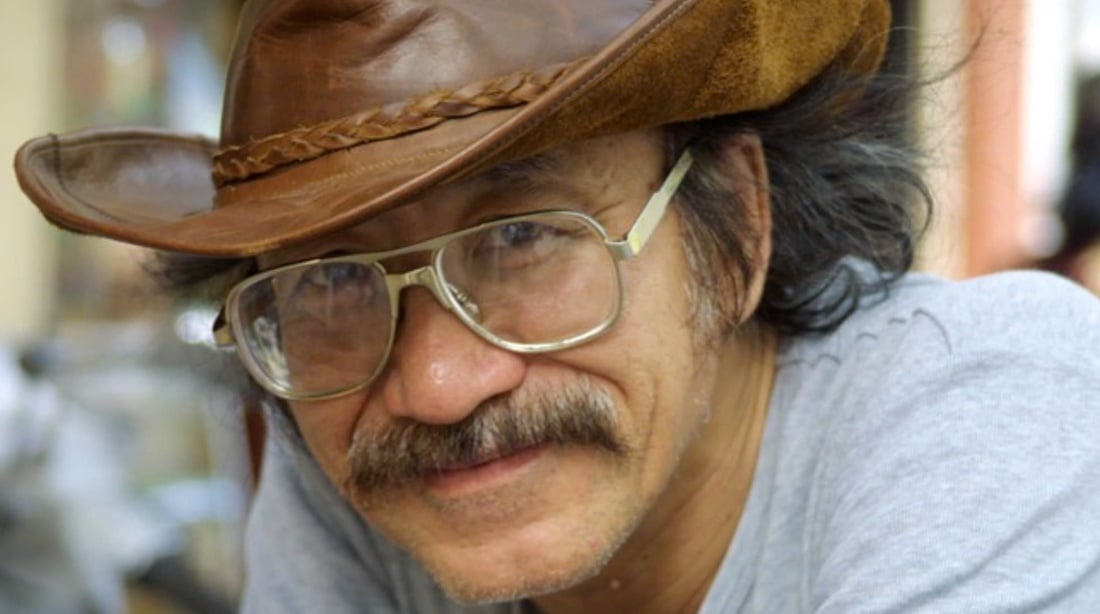
Musician Nguyen Cuong - Photo: NGUYEN DINH TOAN
Duong Thu "appeared" 10 years after Nguyen Cuong (1990), more quietly, thanks to the work of singer Le Quyen (a pioneering pop singer in Hanoi, famous in the 1980s - PV) - who had previously "promoted" the songs Spring Breath and Sea Waves . But for some reason, a TV program recorded the songs but when editing, every time his name appeared, it was removed.
Before that, in 1978, Duong Thu had Question before the sea, Shadow of a coffee cup (sung by Le Thu (young), in the 1980s he had Listening to spring return (sung by Trang Kim Yen), Gentle sun (sung by Bao Yen), Lullaby for you (sung by Thanh Lan)... However, because he sang at coffee shops and music venues in District 10, Ho Chi Minh City, not many people knew about him.
"In the 1990s, Hong Nhung turned it into a hit song and performed it everywhere, so people knew there was a man named Duong Thu in this world. That year I was 50 years old," he recalled.
Besides Hong Nhung, there is also a new generation of singers that Duong Thu helped create such as Thanh Lam, My Linh, Bang Kieu, Nguyen Thao, Khanh Linh... They released albums, performed many shows, and Duong Thu's works always made it to the top of the Blue Wave voting program.
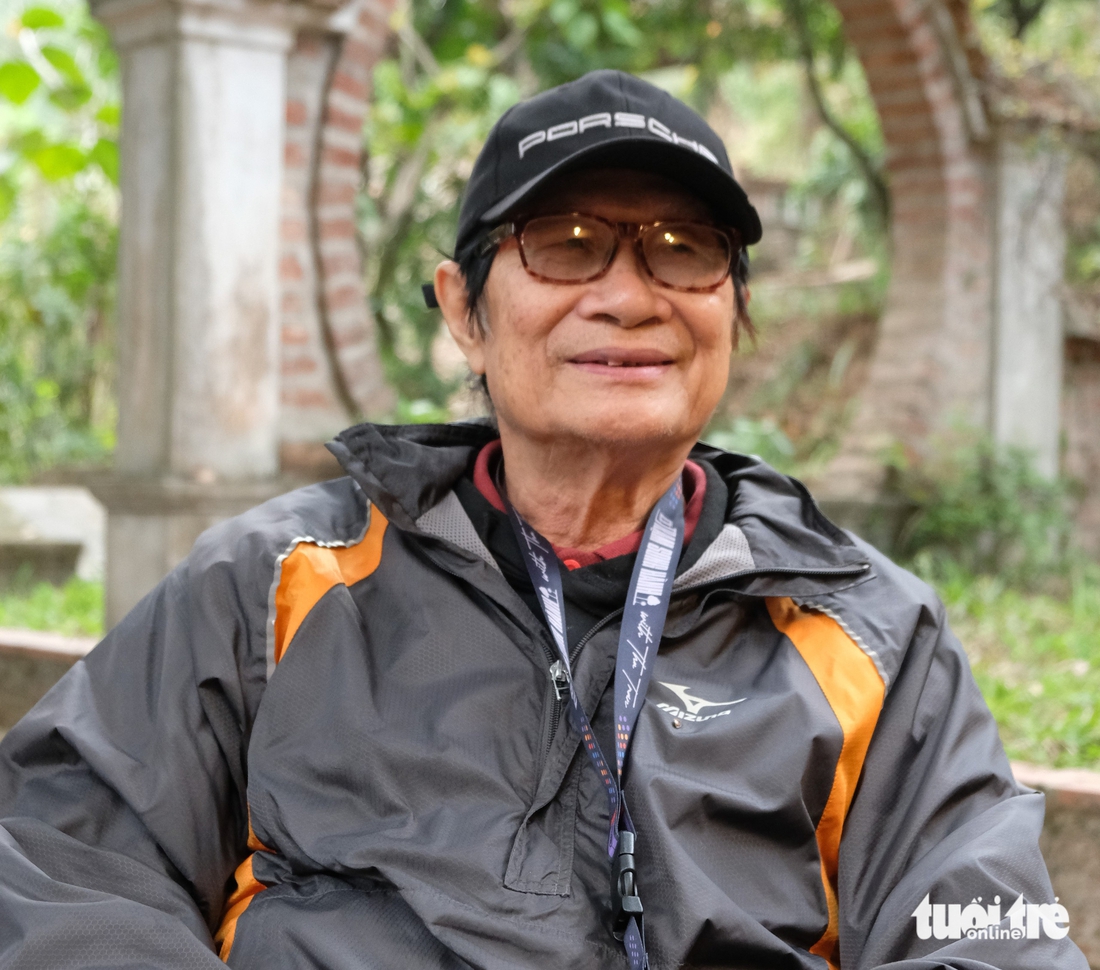
Musician Duong Thu - Photo: DAU DUNG
Love song in homeland
Among the quartet, Pho Duc Phuong and Nguyen Cuong have the most "smooth" careers. Duong Thu and Tran Tien have had more ups and downs.
In an article for Tuoi Tre , Duong Thu confessed that as a child he did not dare to look up because of his background. Growing up, he taught in Tuyen Quang, but faced more danger than good because he defended the poem Nhat Thich Thang by Tran Dan and the poetry collection Cua Mo by Viet Phuong.
In 1977, he packed his bags and went to Ho Chi Minh City to teach at the University of Fine Arts; after a few years, he devoted himself to making music, doing the right thing but was still accused of commercializing music and then encountered many other troubles.
My friend Tran Tien is no less. Due to his family background, his educational opportunities were quite limited, and he spent his youth wandering in the small alleys of Hanoi.
During the time he founded the band Den Trang, he had many songs that were considered "problematic" when referring to human status and the painful things of society at that time such as Rock Dong Ho, Tran Nak 87, Chuyen Nam Nguoi ... Even Diep Khuc Tinh Yeu was not allowed to be sung because it contained the word "kiss".
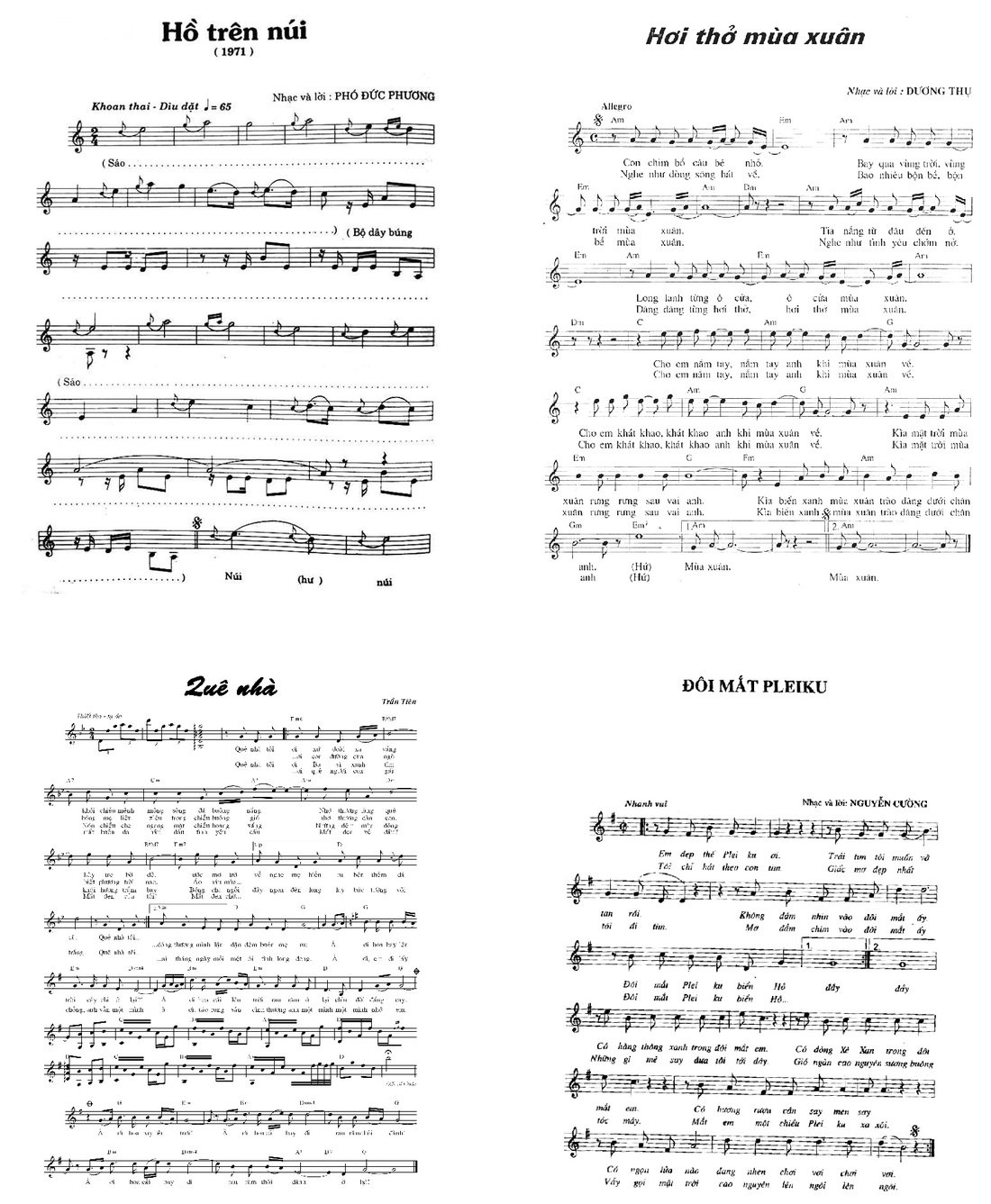
Some music by the quartet
After writing Rock Clock , he had to hide in Nhieu Loc Canal, sheltered and fed by an old woman for six days. Until, thanks to a connection, Tran Tien flew to Hanoi to meet Mr. Nguyen Van Linh, who told him that Tran Tien's music did not incite riots but rather incited patriotism, then everything calmed down.
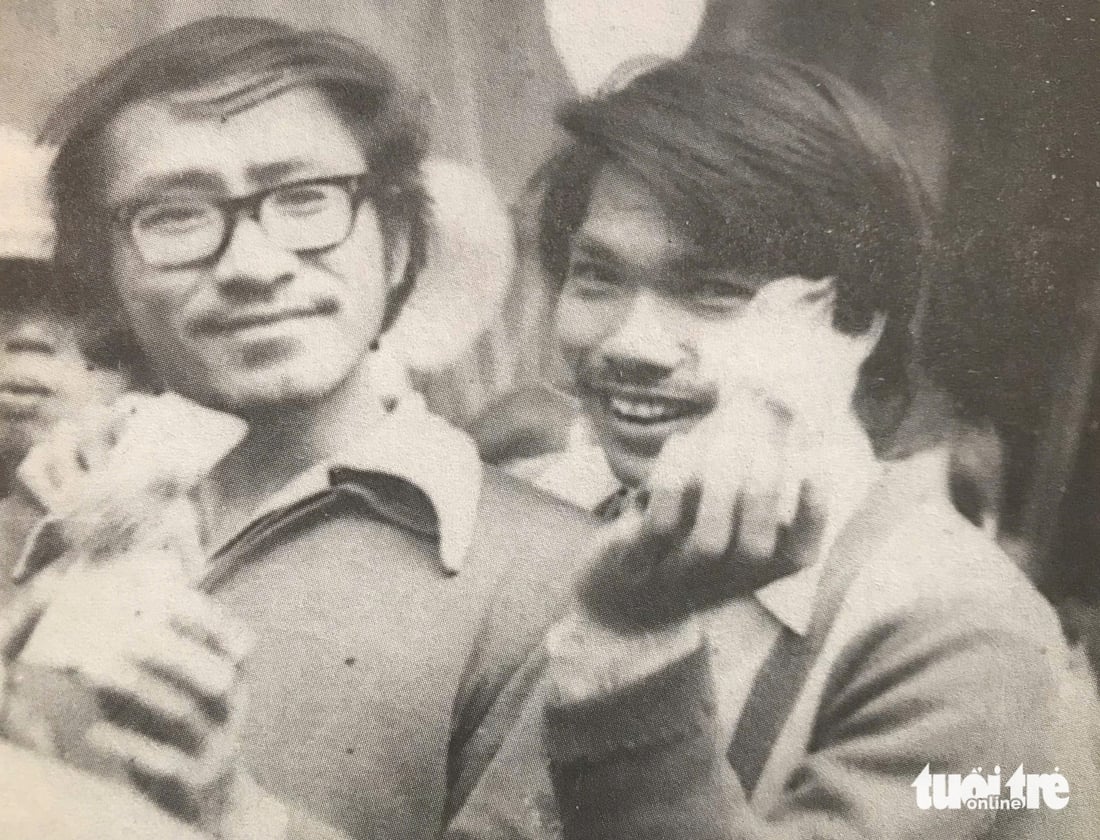
Musicians Tran Tien and Nguyen Cuong in 1973 - Photo taken from Tran Tien's book Improvisation
That period of Uncle Tran Tien left a "shock" on his niece, singer Tran Thu Ha, who was only 10 years old at that time.
Recalling this time, Tran Thu Ha once said "my uncle was very sad", "that sadness seemed to fill my parents' house when he returned".
"He sat there absent-mindedly, then somehow he turned the 1.2m bed in his parents' 28m2 room into a small stage. And he sang, sang all the songs in the Black and White song collection, passionately and passionately, with tears glistening on his face."
Four people, four paths, four styles and four destinies. They lived and wrote through difficult but also important periods of the country.
No one is the same, but "they are attached by the nostalgia of a time of war, a time of innovation, a time full of joy, sadness, bitterness and injustice as Tran Tien once told.
But they, looking back half a century, in hardship still thirst for life, thirst for love and they never give up on music.
They are still the ones who write love songs in their homeland, in one way or another, whether writing for themselves or writing for everyone, for life.
Listen to singer Le Quyen sing the song Spring Breath by musician Duong Thu
Since the 1980s, Duong Thu has been writing "a little dove, flying through the sky, the spring sky, where does the sunlight come from, sparkling in every window, the spring window" and "let me hold your hand when spring comes".
He said "music allows me to live with my inner self the most". Living with my inner self means not losing myself, to continue dreaming of a better tomorrow. In Wish for Spring , excerpted from the Four Seasons Suite (1968), there is a line: Wishing for the four seasons to be warm and spring to come / Wishing for people to only know love. It means to live with the Eternal dream of humanity: gentle as white clouds, clear as a spring, solid as a mountain rock, warm as a fire.
Or Tran Tien, in the book Improvisation , he confided: "Let's just go on the road with the happy and sad surprises ahead, the worn grass tracks left behind on the roads. Youth leaves behind a soft pillow, for old age to bury its face in. Life leaves behind an epic poem of each fate. Life is still the same, no one can determine the path we take".
Pho Duc Phuong once shared with the press about the quartet: "Tran Tien is tentatively called passionate and full of improvisation. Tien's acting is the most skillful of the four. Duong Thu tends to lean towards the beauty of the Western classical romantic period, which has of course been Vietnamized and... Duong Thu-ized.
Nguyen Cuong is passionate, fierce and very direct. Besides the Central Highlands, Nguyen Cuong also delves into folklore from all regions.
As for me, I have to say that folk culture is ingrained in my blood, flesh and breath, permeating my music. It is not as direct as Nguyen Cuong, as skillful as Tran Tien and certainly not as 'classic' as Duong Thu. It is potential.
Source: https://tuoitre.vn/bo-tu-song-hong-nua-the-ky-viet-tinh-ca-tren-que-huong-20250425144648347.htm



![[Photo] "Lovely" moments on the 30/4 holiday](https://vphoto.vietnam.vn/thumb/1200x675/vietnam/resource/IMAGE/2025/5/1/26d5d698f36b498287397db9e2f9d16c)
![[Photo] Ha Giang: Many key projects under construction during the holiday season](https://vphoto.vietnam.vn/thumb/1200x675/vietnam/resource/IMAGE/2025/5/1/8b8d87a9bd9b4d279bf5c1f71c030dec)

![[Photo] Binh Thuan organizes many special festivals on the occasion of April 30 and May 1](https://vphoto.vietnam.vn/thumb/1200x675/vietnam/resource/IMAGE/2025/5/1/5180af1d979642468ef6a3a9755d8d51)


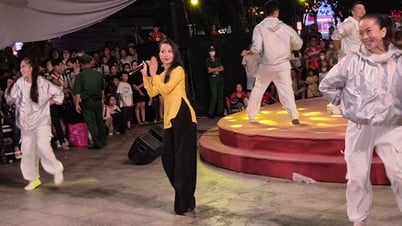











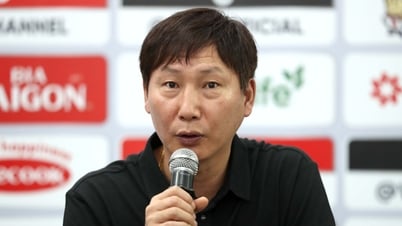
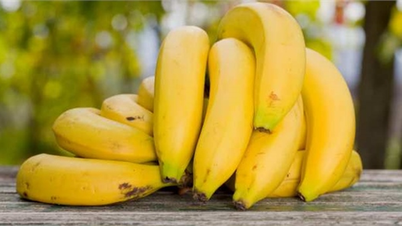











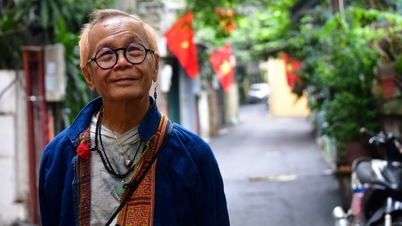






















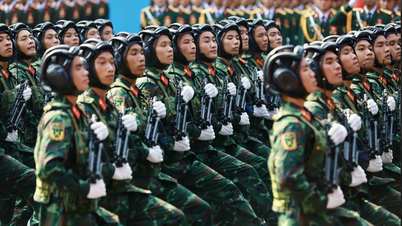














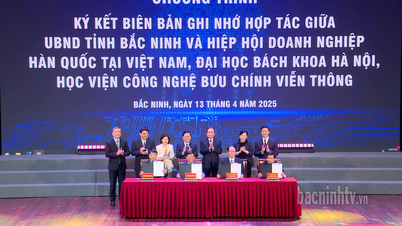






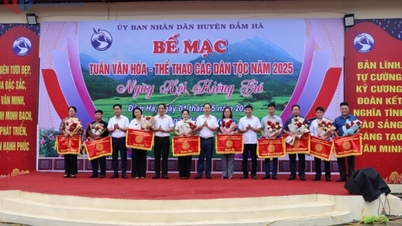












Comment (0)